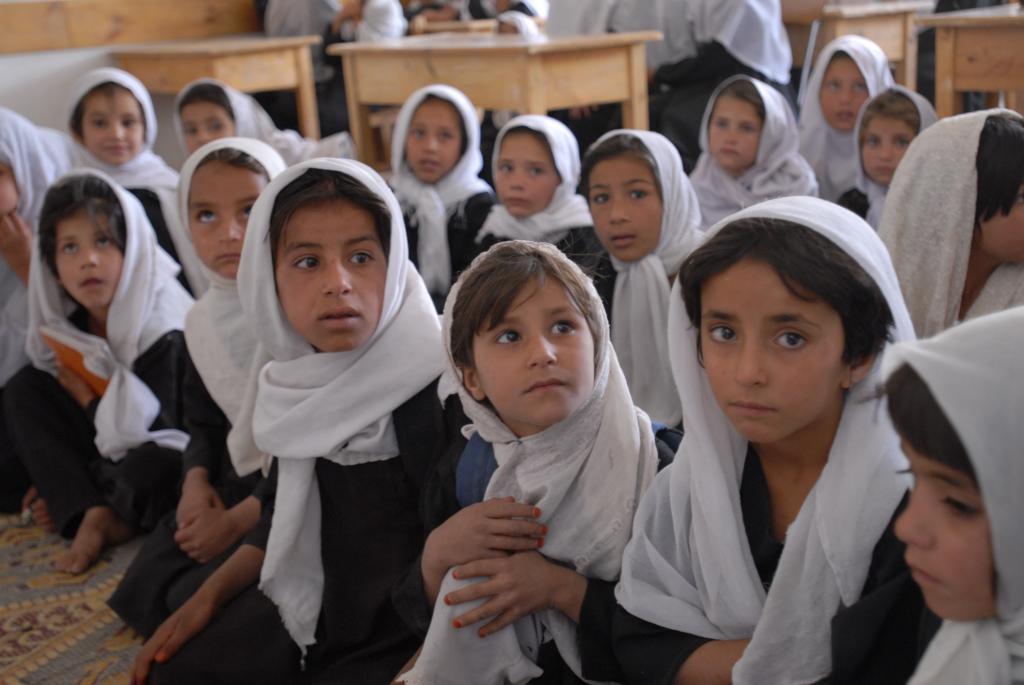Secondary menu
IHRP Working Group: Gender Apartheid in Afghanistan
Examining Canada’s role in Afghanistan’s systematic discrimination against women and girls
By: Manreet Brar (2L) and Nicholas Slawnych (2L) Credit: Wikimedia Commons
Credit: Wikimedia Commons
Group Leads: Manreet Brar (2L) and Nicholas Slawnych (2L)
Group Members: Asra Areej (1L), Alexandra Burns (1L), Annie Chang (1L), Emma Farrell (1L), Yinzi Gao (3L), Cassandra (Cassie) Heward (1L), Jaerin Kim (1L), Paniz Fotoohi Roud Majani (1L), Miruna Mureseanu (3L), and Yasmin Rajwani (1L)
About the Gender Apartheid in Afghanistan Working Group
In the words of the United Nations Special Rapporteur on the situation of human rights in Afghanistan, “nowhere else in the world has there been an attack as widespread, systematic and all-encompassing on the rights of women and girls as in Afghanistan.” Since taking power in August of 2021, the Taliban have imposed a regime that violates the fundamental rights of women and girls. Despite the Taliban’s repeated commitments to upholding women’s rights, experts have observed that since coming to power the Taliban have engaged in systematic gender-based discrimination against women and girls in areas such as education, employment, mobility, and healthcare. This report's designation of gender apartheid highlights the international community’s duty to take effective action to end the practice. Recognising that Canada has an active role to play in ending the gender apartheid in Afghanistan, the IHRP launched the Gender Apartheid in Afghanistan working group for the 2023-2024 academic year.
The working group aims to shed light on the international human rights violations of gender apartheid in Afghanistan; identify the role of Canada and the international community in enabling the Taliban’s human rights abuses; and provide policy recommendations outlining ways that Canada can fulfill its international obligations. Ghizaal Haress, Afghanistan’s former presidential ombudsperson and current visiting scholar at the University of Toronto, has been instrumental in helping the group perform research to produce an in-depth report documenting Canada’s role in the Taliban’s human rights abuses against women and girls and in helping develop potential recommendations, including foreign policy advice, to Canada. The group hopes to deliver the report in presentation form for David Sproule, Canada’s United Nations Special Rapporteur on the situation of human rights in Afghanistan, in the winter 2024 semester. Sproule has held informal discussions with the Taliban more than a dozen times over the past two years, so this report is likely to inform Sproule’s approach to future discussions.
What kind of work are members of your working group engaged in?
In the fall semester, group members have prepared research for the report on two aspects of gender apartheid in Afghanistan. The first subgroup has identified the human rights abuses committed by the Taliban since coming into power in 2021, identifying specific violations of relevant international law in the areas of employment rights, civil rights, education, and socio-economic rights. The second subgroup’s research has focused on whether Canada has adequately upheld its international human rights commitments towards Afghan women and children in view of Canada’s legal obligations and longstanding peacekeeping role in Afghanistan. In the winter semester, students will be transforming their research into a memo-style report
